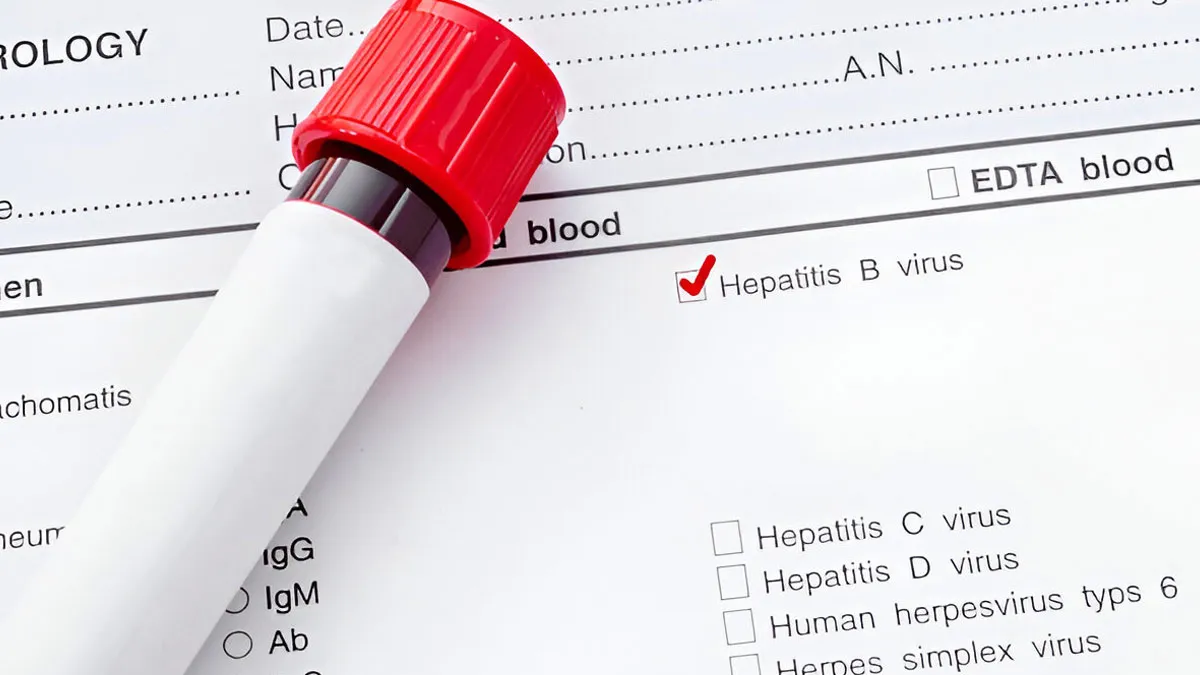
Hepatitis B is a viral infection that affects the liver. It can lead to acute as well as chronic liver disease that can be life-threatening if not treated or managed early. Another risk that comes with hepatitis B is that it is highly contagious and spreads through contact with the blood or certain bodily fluids of an infected person, such as semen, vaginal fluids, and saliva. What’s worse is that some people don’t even know that they have hepatitis B, and continue to go about their lives until the viral infection gets to them or transmits to their loved ones.
Table of Content:-
In such scenarios, charitable works like blood donation can backfire, which is why timely screening becomes crucial. In an interaction with the OnlyMyHealth team, experts share screening essentials and preventive measures for hepatitis B, especially if you are planning to donate blood.
Also Read: Hepatitis B Vaccine: Who Should Get It And When Is The Right Time?
What Is Hepatitis B?

The World Health Organization (WHO) refers to hepatitis B (HBV) infection as a major public health problem. It occurs due to a viral infection that attacks the liver and can cause both acute and chronic liver disease. In 2022, the WHO estimated that 25.4 crore people were living with chronic hepatitis B, with 10.2 lakh new infections every year.
What makes the numbers concerning is that hepatitis B is a preventable disease, yet due to a lack of awareness, many people overlook the necessary precautions.
Most adults with acute hepatitis B recover fully, but some develop chronic hepatitis B, which can lead to serious complications like cirrhosis, liver cancer, and liver failure.
Symptoms often include fever, fatigue, loss of appetite, nausea, vomiting, abdominal pain, and jaundice.
Can A Person Have Hepatitis B Without Knowing?

The short and concerning answer is 'yes'. According to Dhiren Trambadia, Vice President, Trivitron Healthcare, a person can carry the hepatitis B infection without knowing it, as it often has no symptoms. Sometimes, people may develop symptoms that aren't liver-related, leading to confusion and delayed diagnosis.
For instance, a small study published in the Indian Journal of Dermatology found that many of the patients with psoriasis, vitiligo, or pityriasis rosea tested positive for hepatitis B but showed no obvious signs of liver-related symptoms.
This suggests that hepatitis B infection can quietly persist in the body and potentially influence other conditions without showing classic symptoms.
It, therefore, highlights the need for greater awareness, routine screening, and early detection, especially since hepatitis B is preventable and manageable if caught in time.
Why Screening For Hepatitis B Is Crucial Before Blood Donation
The fact that hepatitis B can be silent and mistaken for other benign conditions makes it crucial to undergo screening, especially before donating blood to someone else.
Dr Hamza Dalal, Consultant Haematologist, Fortis Hospital, Kalyan, shares, “If not screened early, hepatitis B can be transmitted to blood recipients, leading to acute or chronic hepatitis. This may result in liver cirrhosis, hepatic failure, or hepatocellular carcinoma." The hepatitis B virus is transmitted through contact with the blood or other body fluids of an infected person.
How Accurate Are Hepatitis B Tests?

Current hepatitis B screening tests used in blood donation, including HBsAg, Anti-HBc, and NAT for HBV DNA, offer high sensitivity and specificity, highlights Trambadia, adding that combined, they ensure detection even during the window period, reducing the risk of transfusion-transmitted HBV to a minimum.
Also Read: Doctor's Viral Video Claims Threading Can Increase Hepatitis B Risk: Fact Or Myth?
What To Do If You Have A Positive Hepatitis B Test Result?
If a person tests positive for hepatitis B, confirmatory tests like HBV DNA and liver function tests are recommended to assess infection status and liver health, advises Dr Dalal.
He adds that medical follow-up is essential to evaluate the need for treatment and prevent transmission to others.
Conclusion
Hepatitis B may not always show symptoms, but its consequences can be severe, especially when unknowingly passed on through something as well-intentioned as blood donation. This makes routine screening not just a medical formality but a moral responsibility. With reliable tests now widely available and preventive measures like vaccination within reach, the power to stop the silent spread of hepatitis B lies in awareness and timely action.
Also watch this video
How we keep this article up to date:
We work with experts and keep a close eye on the latest in health and wellness. Whenever there is a new research or helpful information, we update our articles with accurate and useful advice.
Current Version